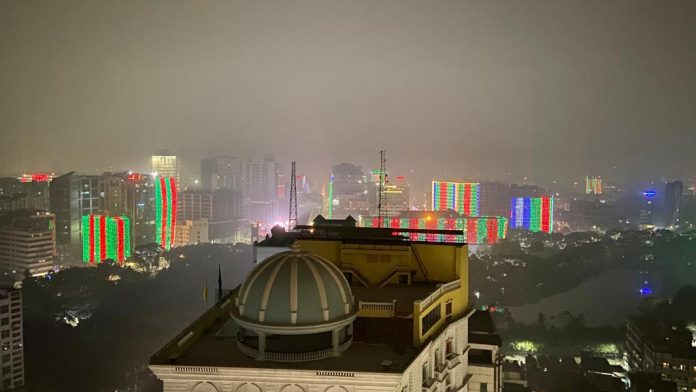I visited Bangladesh for a few days, during which I was able to get an idea of what is happening in this country, both from an economic, social, cultural and political point of view, reaching the conclusion that it is a country with a booming economy, where you should invest and make business with.
This country has one of the fastest economic growths in the Asia-Pacific area, with a very open political-military power, offering facilities to investors, having agricultural products at a very attractive prices for exporters.
We can also talk about the labor force – the salary is somewhere around $150-200 per month, and the workers are people who do not consume alcohol, in their place and who do their job without many claims and questions.
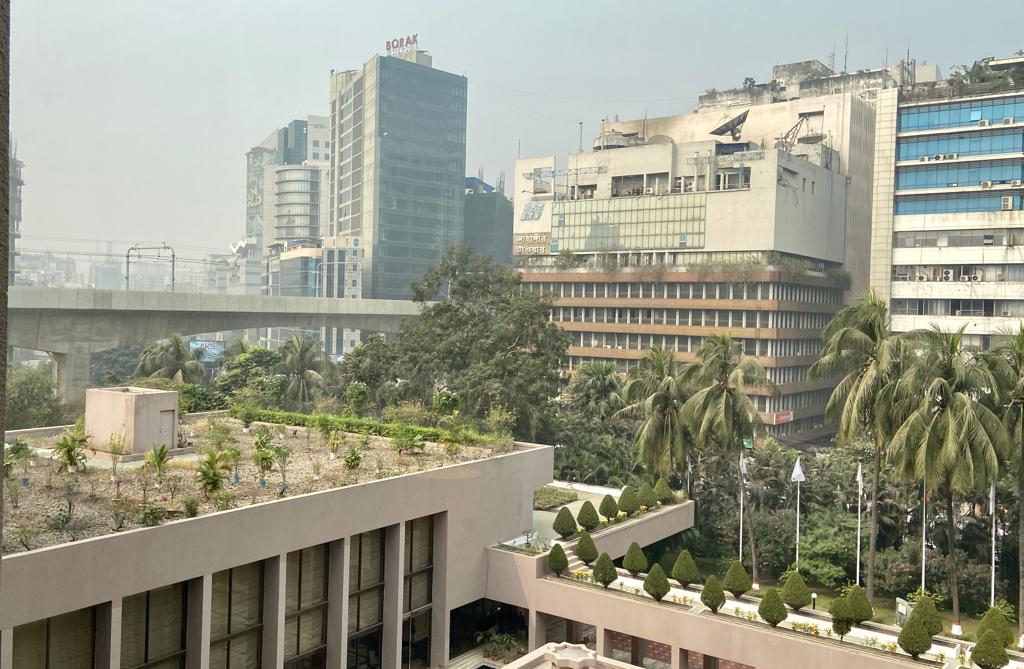
Infrastructure, development and business in Bangladesh
The most important asset, from my point of view, of this country in Asia, is the fact that the country is a big construction site – from the construction of new roads and bridges (we crossed a bridge of over 6 km) to the construction of new railways, expansion and modernization of several airports, up to new electrical and communication networks. When I see a country investing in infrastructure, it means that country understands the meaning of development.
It is important to note that there is no country in Europe with so substantial funds for such investments. Bangladesh does these things only with money from the state budget.
To get an even more accurate picture of why I said above that I appreciate infrastructure investment and say that it is an opportunity for investment and business in and with Bangladesh, consider that it is a country that is home to around 1 million refugees from Myanmar, it is a country with over 166 million inhabitants – on a smaller surface area than Romania (148,000 km2) and yet it has economic growth and construction – that says a lot about this country.
You have internet everywhere with a local sim card, obviously for an EU citizen (not yet in Schengen like me, from Romania) it is a pleasant surprise.
Another important area where there is room for business – is digital and communications area and IT infrastructure (software, mobile applications and networks) because there is a need for something like this, including the digitization of administration. I also recommend consulting in the field of advertising/PR and business tourism.
Still, this country does not know what and how to promote itself, even though the people in the Ministry of Foreign Affairs of Bangladesh, with whom I had direct and daily contact, are very friendly, hospitable and open, with the desire to penetrate even more into international areas – they also need external help, a guide, some partners to work with on projects for the development of this area. They are very open from what I could observe these days.
It is also necessary for local businesses, for companies that want to export their products, to develop and enter international markets, to contract companies specialized in consulting, advertising and international PR, international lobbying.
As a recommendation, if you are thinking of going to Bangladesh to find business opportunities it would be good to get in touch with the authorities, through the embassy, or if you are not considering a visit you can find out more details by accessing the websites below, where you will find many details on foreign investment and government opportunities:
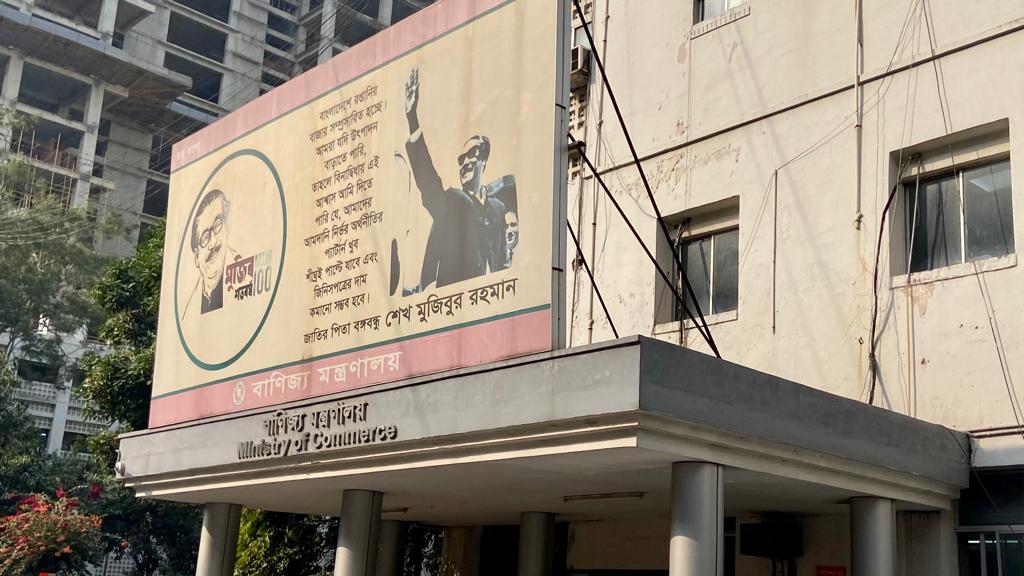
Other very interesting areas for potential investors and businesses would be the area of waste management – in all that means collection, sorting, transport and storage of waste and traffic management in Dhaka (I will detail in the next chapter).
An equally important detail is the fact that most of the ministries are in the same place. Taking into account the traffic problem in Dhaka, it is very good that they are positioned in the same area, especially in the situation where you need discussions, documents or other details with government area.
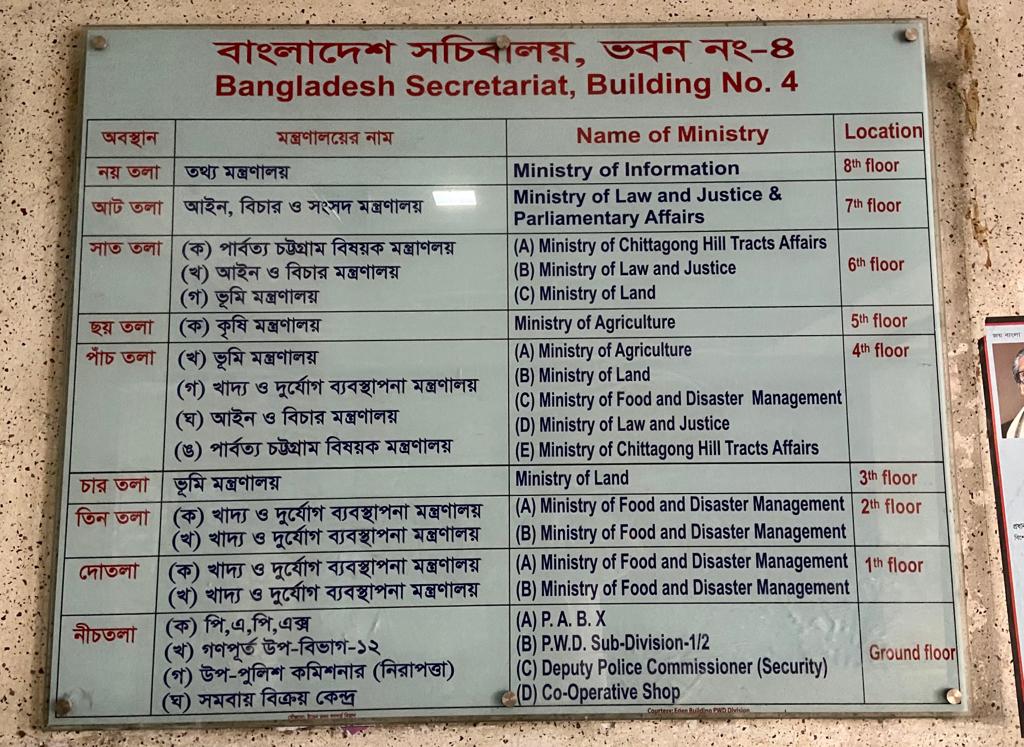
Dhaka, the Capital of Bangladesh
As European citizen, the first contact with Dhaka, the capital of Bangladesh, is quite shocking. You will really see what traffic means, a downright chaotic traffic, but surprising at the same time because, however, even if there are no traffic lights, traffic rules to be respected or at least ambulances to be given priority, they manage to get around without a total traffic jam. In a few days you get used to it, it will seem normal and no longer shocking.
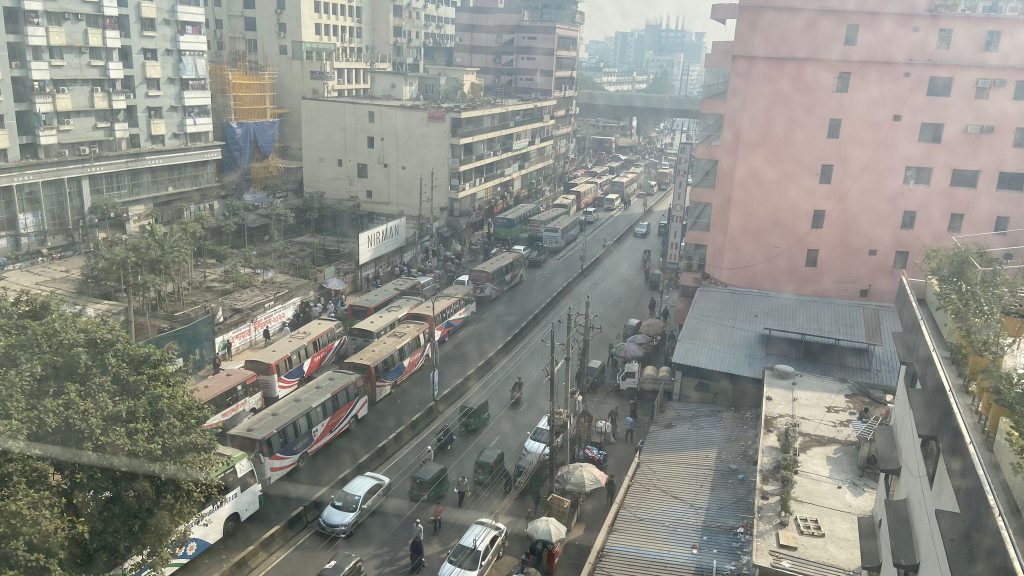
There are also 5-star hotels, I recommend the hotel where I stayed – Pan Pacific Sonargaon Dhaka. The food, employees, security and conditions are very good – you really rest in the hotel bed after a hard day around the capital.

There are many restaurants, some very good ones, at least at the ones where I dined you are welcomed with joy and whatever you ask for is offered.

The food is local, Asian, fish and seafood (ocean), from local products. I was won over by the cakes and pastries – including the local oranges and bananas (smaller than the ones we know). I recommend FEAST Restaurant, Royal Buffet Restaurant and Green Lounge.

There are some museums that are good to visit if you want to understand the history of this young state, which won its independence with many sacrifices only 51 years ago. It is a hard-tested country that has gone through several tragedies before gaining its independence.
The Father of the Nation, Bangabandhu Sheikh Mujibur Rahman (1920-1975) is the architect of independent Bangladesh. The father of the people, as he is known, is revered in the state, mainly because he fought for independence and ended up being assassinated along with most of his family by a faction of the army. Sheikh Hasina, one of his 2 daughters, his only surviving children, being out of the country at that time, is the current prime minister of Bangladesh. A description of this tragic history was made by the Foreign Minister of Bangladesh in the video below.
Since there are no traffic lights and a traffic flow plan, especially for the 2 most frequently used means of transport: the rickshaw and auto-bicycle, they lead to the famous traffic jams, which make traffic in the city very difficult.

It should be noted that a major contribution to this traffic jam is also the fact that intensive work is being done on the city’s infrastructure – metro, roads and suspended railways. Dhaka is a construction city, which is a very good thing, infrastructure is developing.
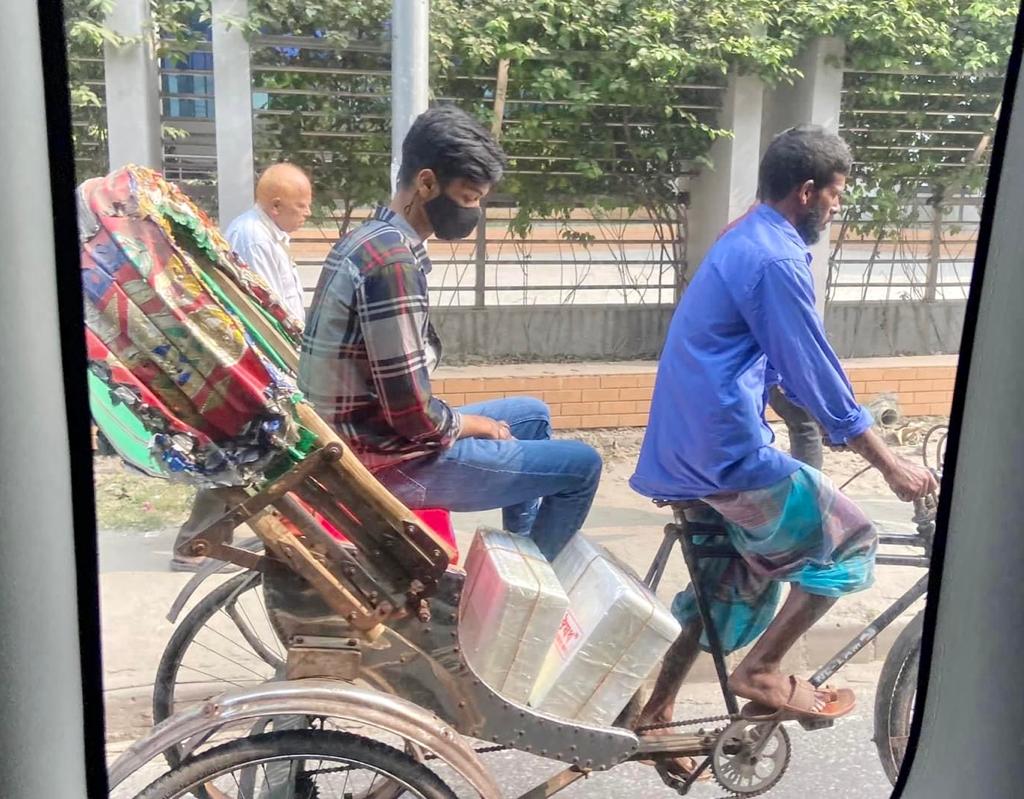
A major problem in the urban area of Dhaka is smog, due to excessive pollution and overpopulation of the city, but officials say they are making efforts to find solutions – after all, we are talking about more than 16 million inhabitants in the capital of Bangladesh – almost as many citizens as Romania now has in the country (because there are several million gone to other countries in Europe).
Cox’s Bazar – where you find the longest uninterrupted beach in the world
During my visit to Bangladesh I was also in the area where the longest continuous beach in the world Cox’s Bazar is located – 125 km long.
Cox’s Bazar is an interesting and unique place that Bangladesh wants to promote more to the world.
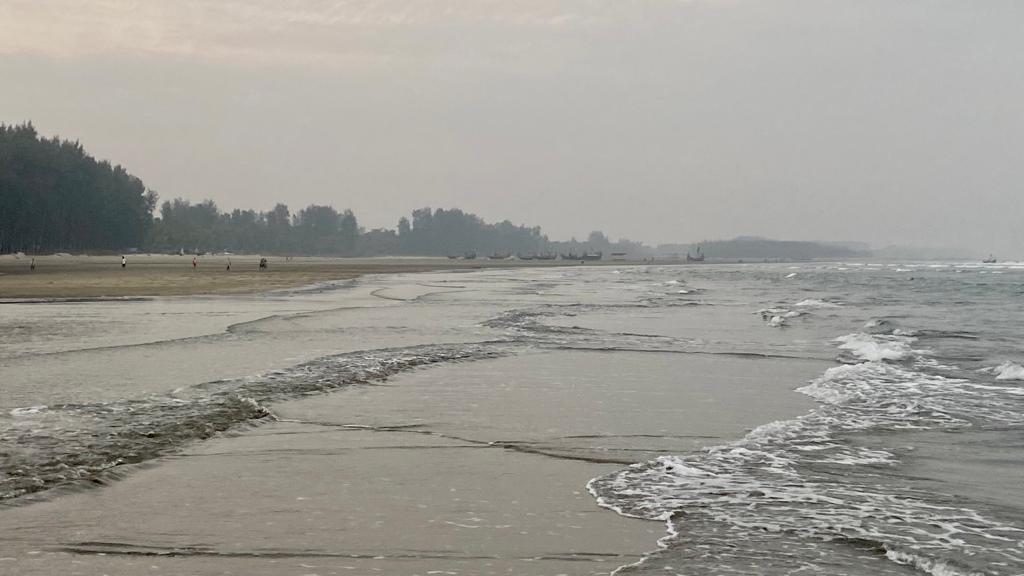
Sabrang – a new opportunity to invest in tourism in the Cox’s Bazar area.
Right now, the government is preparing facilities, including making available to local and international investors land to build new tourist accommodation. It is a new location – called Sabrang, which is in the Cox’s Bazar administrative area. You have more details by visiting the following website:
There are restaurants and hotels in Cox’s Bazar, but they are still at the beginning of an international tourism business – for local tourism they are very good and appreciated.
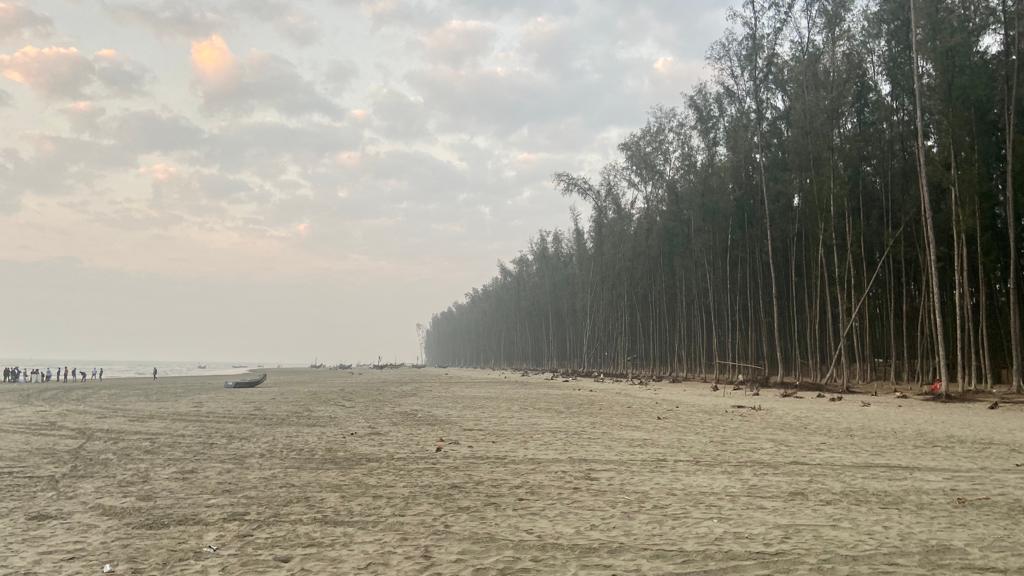
I conclude this first article related to my visit to Bangladesh with some data related to the mass media area in this country.
At the moment, there are around 40 authorized television stations, of which only 4 are governmental, the rest are private: around 500 print newspapers, online news sites somewhere over 5,000.
Author: Iulian Ionescu, chief editor Ecopolitic Media, correspondence from Bangladesh

